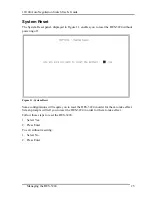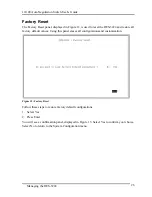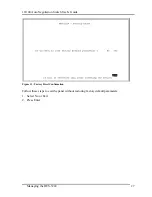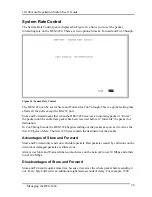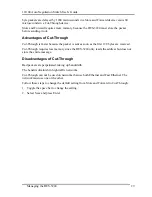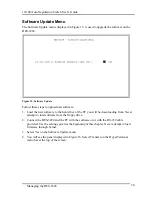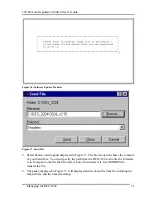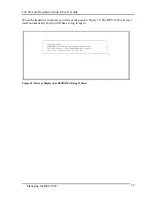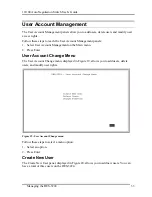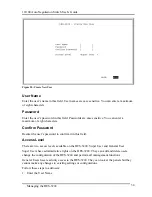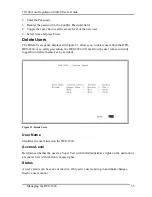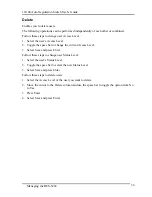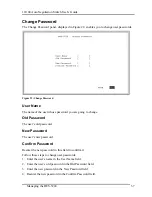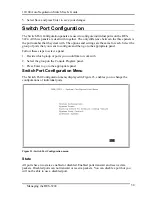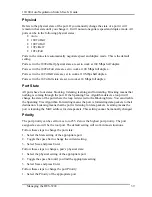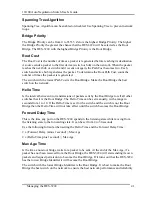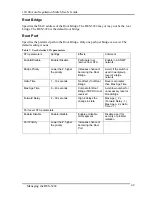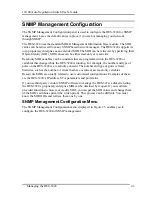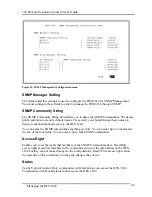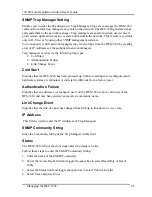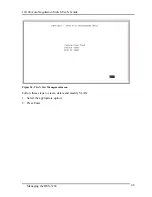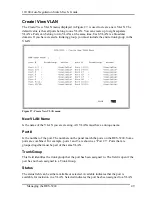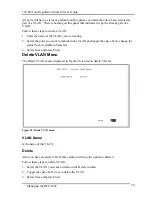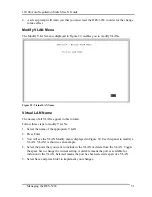
10/100 Auto Negotiation Switch User’s Guide
Managing the DES-3224
39
Physical
Refers to the physical state of the port. If you manually change the state of a port it will
remain in that state until you change it. It will not auto negotiate speed and duplex mode. All
ports can be in the following physical states:
•
Auto
•
100Tx/Half
•
100Tx/Full
•
10Tx/Half
•
10Tx/Full
Ports in the Auto state automatically negotiate speed and duplex mode. This is the default
setting.
Ports set in the 100Tx/Half physical state are set to work at 100 Mbps half duplex.
Ports set in the 100Tx/Full state are set to work at 100 Mbps full duplex.
Ports set in the 10Tx/Half state are set to work at 10 Mbps half duplex.
Ports set in the 10Tx/Full state are set to work at 10 Mbps full duplex.
Port State
All ports have four states: blocking, listening, learning and forwarding. Blocking means that
nothing is coming through the port. If the Spanning Tree Algorithm detects a loop it will
change the state of the port where the loop is detected to the Blocking State. You can disable
the Spanning Tree Algorithm. Forwarding means the port is forwarding data packets to their
destination. Listening means that the port is listening for data packets. Learning means the
port is learning the MAC address for data packets. This setting cannot be manually changed.
Priority
The port priority can be set from zero to 255. Zero is the highest port priority. The port
assigned a zero will be the root port. The default setting will work in most situations.
Follow these steps to change the port state:
1.
Select the State setting of the appropriate port.
2.
Toggle the space bar to change the current setting.
3.
Select Save and press Enter.
Follow these steps to change a port’s physical state:
1.
Select the physical setting of the appropriate port.
2.
Toggle the space bar until you find the appropriate setting.
3.
Select Save and press Enter.
Follow these steps to change the port Priority:
1.
Select the Priority of the appropriate port.

